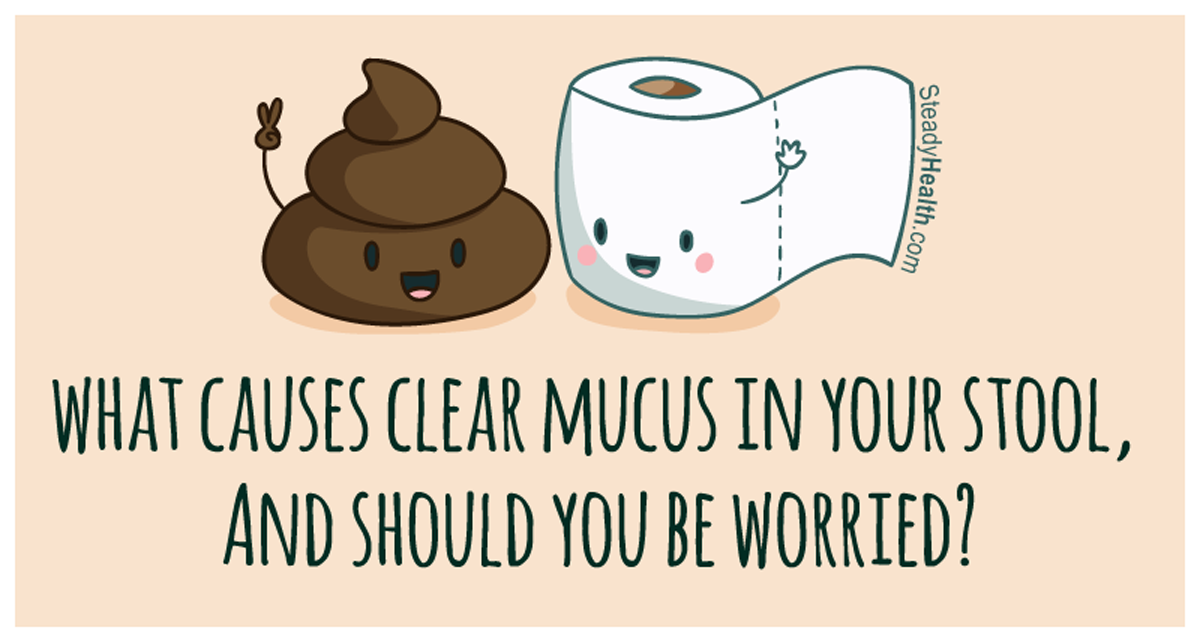A common patient concern doctors come across in medical clinics are frequent bowel movements, but another perhaps even more dramatic cause of alarm among patients would be a noticeable change in the consistency and color of their stools. Patients may notice that their stools have become more "slimy" or "watery" — but are these unusual bowel movements indeed a cause for concern, or is it just something that naturally occurs? Here, we will explore some of the reasons behind visible mucus in your stool and what you need to do if you find yourself with this condition.

Is Mucus in your Stool a Potential Sign of A Dangerous Medical Condition?
When it comes to mucus in your stools, what a lot of people do not realize is the fact that every time you have a bowel movement, there is a small amount of mucus present in the toilet bowl at the end of your efforts. Mucus is a natural lubricant that our body produces to help pass the fecal matter through the anal canal. If we did not have this mucus, it would be much harder and more painful to try to get the stool out of the body [1].
Even if it is not a certain pathology when you find you have mucus in your stool, when you start to notice increased amounts of mucus, this is when alarm signals should begin sounding in your head that something could be wrong. Several potential causes of increased mucus production with bowel movements could lead to long-term complications if you are not proactive and try to get treatment as soon as possible. I will present a few key possible causes of your increased mucus production and what steps you need to do to make sure that you are not at an increased risk. [2]
Mucus in Bowel Movements and Crohn's Disease or Ulcerative Colitis
One of the first thoughts that a physician will have when they hear a patient complaining of increased mucus production in their stool would be one of the types of chronic bowel disease. These two conditions, Crohn's disease and ulcerative colitis, are two of the most likely pathologies associated with increased mucus production with bowel movements [3]. Since 1970, the prevalence of both Crohn's disease and ulcerative colitis has doubled in the Western world [4]. This sharp rise is thought to be due to the deterioration of dietary quality in this population with a lack of proper fiber, chemicals in foods, and genetics.
Both of these chronic bowel conditions are associated with inflammation and sores that develop in the intestinal tract. The pattern and how severe these infections are is the chief differential between what pathology you may have, but the similarity is that you will have increased mucus production wit stools in both of these cases. Patients can expect to have a combination of abdominal pain, increased mucus production, blood in your stools and chronic diarrhea.
If you are unlucky enough to be dealing with either Crohn's disease or ulcerative colitis, you need to act fast to try to limit the significance of this pathology. You will need to go to a gastrologist and have colonoscopies to biopsy the tissue in your intestine to make a proper diagnosis. Thankfully, there are several new medications that were introduced to the market in recent years that can relief flare-ups of these symptoms, but in severe cases, surgery to remove the involved parts of the intestine may be the only viable option. [5]
Bowel Obstructions and Mucus in your Stool
Even if ulcerative colitis or Crohn's disease are two potential factors that need to be considered, most of the time, chronic bowel conditions will not be the "doomsday" scenario and the correct diagnosis could be more benign. Studies suggest that bowel obstructions are another possible cause of increased mucus in stools, so it is something to consider as well. If you are routinely eating a poor diet low in fiber, you predispose yourself to have issues with constipation that could easily result in bowel obstructions. That is why it is imperative for you to have frequent bowel movements and target foods that increase bowel movements.
Mucus is produced in this case as an attempt by your intestines to help move the fecal material through your intestinal tract to make up for the lack of fiber in your diet. The more mucus that you produce, the more likely your body will be able to displace the obstruction. Dietary changes and laxatives are the keys to treating this type of pathology. [6]
Infections and Inflammation also result in Mucus-Filled Bowel Movements
The last possible cause of increased mucus in your stool that I will focus on here could be from inflammation or infections along the intestinal tract. Anal fissures, which are small tears in the lining of the anal mucosa, can lead to bleeding and tearing, as well as to localized infections that can cause the mucus glands along your intestinal tract to be overactive. The same holds true if you are suffering from a gastrointestinal infection of any kind.
Anal fissures are associated with painful bleeding that will manifest as blood in the bowel movements, so if you do not have this symptom, it is likely that you are just suffering from a bacterial infection instead. Some of the time, this will resolve on its own but it is still wise of you to go to your doctor for an antibiotic prescription to help treat the infection. [7]
- Photo courtesy of SteadyHealth.com


Your thoughts on this